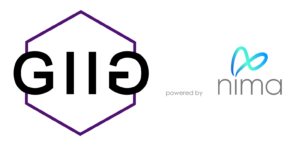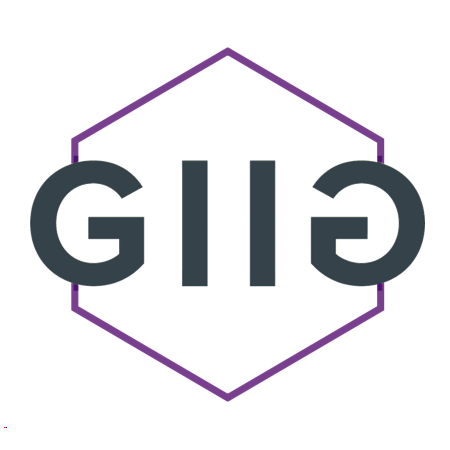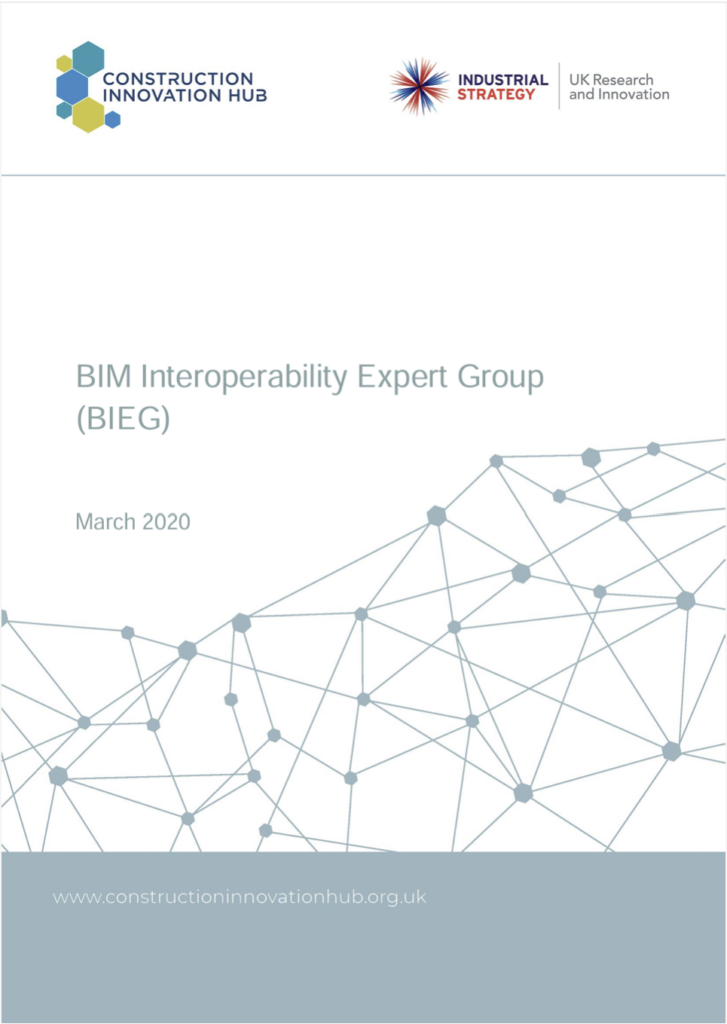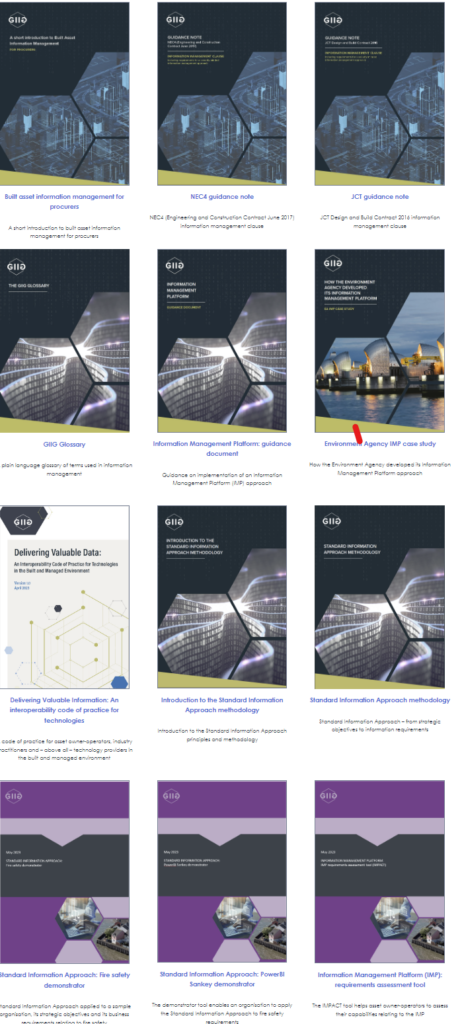GIIG – history
Background
In 2010, the UK Government set out a vision for building information modelling (BIM) adoption and mandated BIM adoption by April 2016 across construction projects procured by central government departments. Interoperability was part of its vision: “Government as a client can derive significant improvements in cost, value and carbon performance through the use of open shareable asset information.”
Interoperability is pivotal to delivering the ‘whole life’ benefits of BIM, providing a means of information transfer between different proprietary technologies. However, many UK organisations across the built environment reported difficulties when trying to achieve interoperable information exchanges. In response to these reported problems and to inform future policy development, the Centre for Digital Built Britain (CDBB), with oversight from the Department for Business, Energy and Industrial Strategy (BEIS) and the Infrastructure Projects Authority (IPA), and support from the UK BIM Alliance (today nima), commissioned a comprehensive evidence gathering exercise.
BIM Interoperability Expert Group Report (2019-2021)
Undertaken by a specially-formed BIM Interoperability Expert Group (BEIG), the review produced a March 2020 report recommending that the UK should increase its support for the development and adoption of various primary and secondary enablers as part of the evolving BIM mandate.
The primary enablers were Classification schema alignment (focused on Uniclass 2015); Construction Operation Building information exchange (COBie); education and skills; Industry Foundation Classes (IFC); and standards.
The secondary enablers were: Asset Information Model (AIM) Common Data Environments (CDE); drivers and enablers; Global Unique Identifiers (GUIDs); operational focus; product data templates (PDTs); proprietary software and the use of application program interfaces (APIs); standard data approach; and procurement and contracts.
Advised by a pan-governmental steering group, and aligning its work with priorities identified in the UK Government’s October 2020 Construction Playbook, the BEIG developed further work in relation to some of these enablers during 2020-2021. The AIM-CDE workstream evolved the concept of a asset owner-operator’s Information Management Platform, IMP; a benefits statement relating interoperability benefits to different industry actors was developed; and groundwork for further projects to be managed by BEIG’s successor, the Government & Industry Interoperability Group, was undertaken.
Government & Industry Interoperability Group (2021-2023)
From April 2021 to March 2023, the Government & Industry Interoperability Group (the first GIIG) focused initially on five workstreams, adding a sixth in early 2022:
- classification – further development of Uniclass to underpin interoperable approaches
- IFC and COBie – relating ongoing international development of IFC to specific UK requirements
- the Information Management Platform (IMP) – developing the IMP concept further, a case study of IMP development by the Environment Agency, and creating an IMP capability assessment tool
- technologies, openness and APIs – reviewing options, then developing an interoperability code of practice for technologies, launched in April 2023
- procuring for interoperability – developing contract clauses and advice to procurers, working with Build UK on s.10 of its Common Assessment Standard
- standard information approach – discovery work relating organisations’ standard information requirements to their strategic objectives, including development of a fire safety use case
Outputs from this work are listed in our publications, which also includes a glossary of information management terms described in plain language, helping ensure consistency in terminology and understanding.
‘New’ GIIG (2023 onwards)
Government funding for the Government & Industry Interoperability Group ended in early 2023. During the remainder of 2023, the team continued to meet and discuss its work, and created a business that could continue its activities. This was established as a trading name of nima services Ltd, and began its first client commissions in late 2023.




